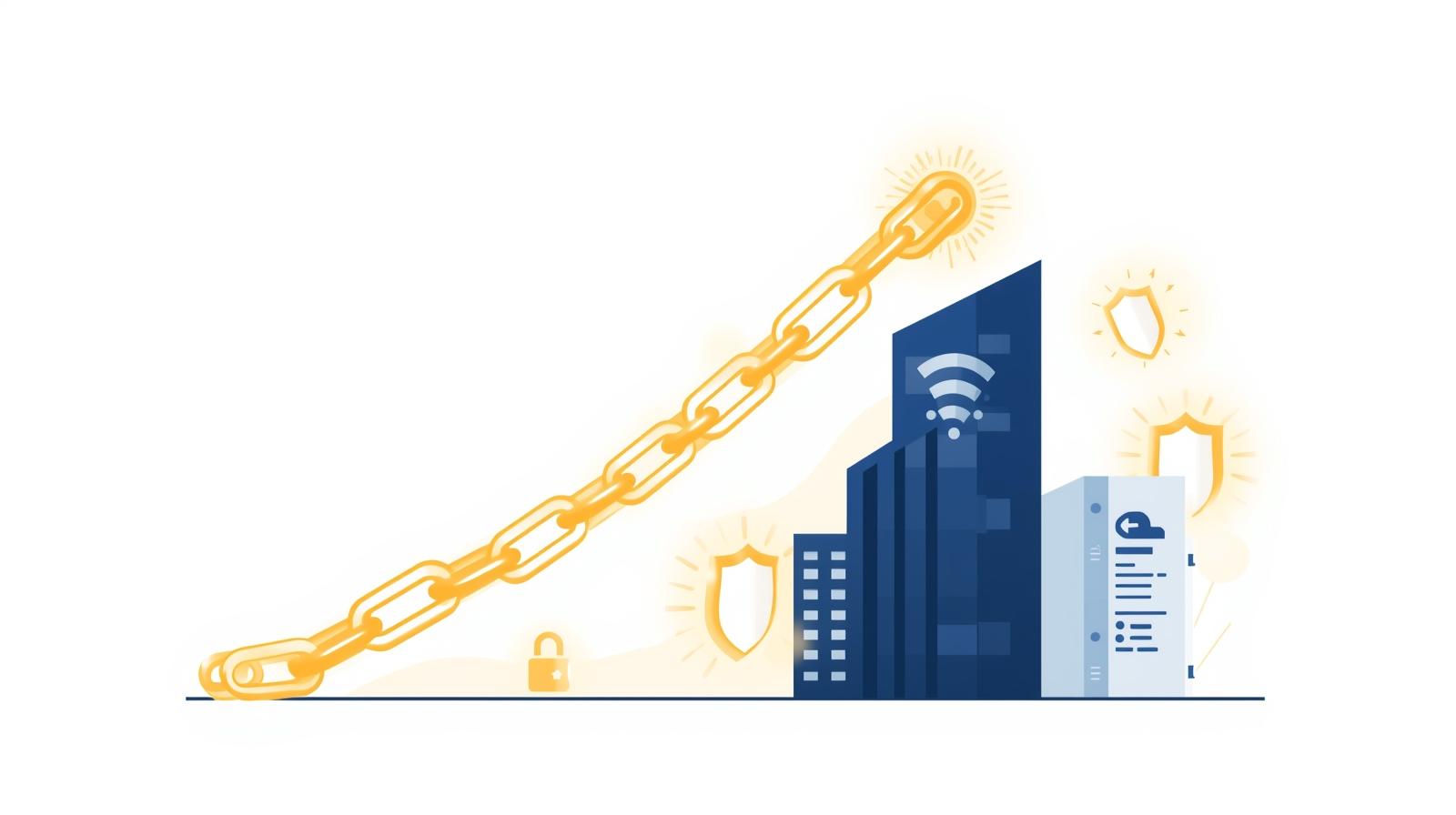As the digital landscape evolves, sustainable SEO strategies are essential for businesses aiming to maintain strong search rankings and long-term online visibility in 2025.
Relying on short-term tactics or quick fixes is no longer effective; only approaches with lasting impact deliver meaningful results.
The SEO world is shifting rapidly. Advances in AI, Google’s Core Web Vitals, mobile-first indexing, and evolving user expectations are redefining what it means to optimize a website successfully.
Strategies that worked a few years ago may no longer yield results, making it crucial to focus on sustainable, future-proof approaches.
Sustainable SEO strategies prioritize quality content, technical excellence, and user-centric design while adhering to search engine guidelines.
These strategies not only improve rankings but also enhance user experience, increase engagement, and drive conversions over time.
In this guide, we’ll explore the techniques, tools, and practices that constitute SEO in 2025—approaches that actually work and stand the test of time.
Why SEO in 2025 Requires Sustainable Strategies
As search engines become smarter and user expectations rise, sustainable SEO strategies have become more crucial than ever in 2025.
Algorithms now prioritize content quality, relevance, and seamless user experience over outdated tricks like keyword stuffing or manipulative backlink schemes. Businesses relying on short-term tactics risk not only penalties but also eroding credibility and lost audience trust.
Investing in long-term SEO approaches ensures steady organic traffic, higher conversion rates, and stronger brand authority.
Sustainable strategies focus on creating valuable content, optimizing technical performance, and nurturing high-quality backlinks—practices that consistently yield results over time.
By aligning with search engine priorities and user expectations, businesses can maximize ROI while reducing the need for constant reactive adjustments.
The Evolving Search Engine Landscape in 2025
Search engines are increasingly AI-driven, emphasizing contextual understanding and intent-based results. Features like Core Web Vitals, mobile-first indexing, and enhanced snippet optimization are shaping how websites are evaluated.
Sites that prioritize performance, accessibility, and relevant content are more likely to rank higher, making sustainable SEO an indispensable part of a modern digital marketing strategy.
Why Short-Term SEO Tactics Can Backfire
Techniques such as over-optimization, spammy backlinks, or hidden keyword stuffing may offer temporary gains but often result in penalties or algorithmic devaluation.
Over time, these tactics can harm brand reputation and decrease organic traffic. Sustainable SEO mitigates these risks by focusing on ethical practices, evergreen content, and user-centric improvements—creating lasting authority and visibility.

Top Sustainable SEO Strategies That Actually Work in 2025
To stay competitive in 2025, businesses must adopt sustainable SEO strategies that focus on long-term impact rather than short-lived tricks.
The modern SEO landscape demands approaches that align with Google’s evolving algorithms, prioritize user experience, and deliver measurable results over time. Below are some of the most effective strategies you can implement today.
Optimizing On-Page Elements for Sustainable SEO in 2025
On-page optimization remains a cornerstone of sustainable SEO. Start by refining meta titles and descriptions to ensure they accurately describe content while enticing clicks.
Use header tags (H1, H2, H3) strategically to structure content for readability and semantic relevance. Implement structured data to help search engines better understand your content, improving rich snippet opportunities.
Additionally, a robust internal linking strategy enhances crawlability and distributes link equity across your site, strengthening overall SEO performance.
Creating Evergreen Content for Long-Term SEO Success
Evergreen content is content that remains relevant over time, driving consistent traffic and engagement. Blogs, comprehensive guides, and tutorials are excellent examples of evergreen assets.
Focus on topics that address core user needs and industry questions. Regularly updating evergreen content ensures accuracy, maintains relevance, and signals to search engines that your website is active and authoritative.
Improving Site Speed and Core Web Vitals for Sustainable SEO
Website performance is a critical factor for both rankings and user satisfaction. Google evaluates Core Web Vitals, including Largest Contentful Paint (LCP), First Input Delay (FID), and Cumulative Layout Shift (CLS).
Optimizing images, leveraging browser caching, and minimizing render-blocking resources can dramatically improve load times.
A fast, responsive site not only boosts SEO but also reduces bounce rates and increases conversions, making site speed a non-negotiable component of sustainable SEO.
By combining on-page optimization, evergreen content creation, and performance improvements, businesses can implement sustainable SEO strategies that deliver long-term growth, improved rankings, and higher ROI in 2025 and beyond.
Link Building and Authority as One of the Sustainable SEO Strategies
In 2025, search engines continue to prioritize authority and trust when ranking websites. Establishing your site as a reliable and credible source signals to Google that your content is valuable, improving your chances of higher placement in search results.
However, not all backlinks are created equal. While high-quality, relevant links can boost your authority, spammy or low-quality backlinks may harm rankings and trigger penalties.
Sustainable Link Building Techniques That Actually Work
Sustainable link building focuses on long-term strategies that build genuine authority. Guest posting on reputable websites, forming content partnerships, and conducting targeted outreach to industry influencers are effective ways to earn high-quality links.
Public relations (PR) efforts, such as press releases or media mentions, can also generate authoritative backlinks that enhance your site’s credibility.
The key is to prioritize relevance, trustworthiness, and value for your audience rather than chasing large volumes of links.
How Brand Authority Impacts SEO in 2025
A strong brand presence amplifies SEO efforts. When users recognize and trust your brand, engagement and click-through rates improve—both signals search engines interpret as indicators of quality.
Consistent branding, thought leadership, and valuable content contribute to online authority, reinforcing the effectiveness of your sustainable SEO strategies and supporting long-term search visibility.

Content Optimization Tips for SEO in 2025
In 2025, effective SEO goes beyond keywords—it emphasizes user-focused, high-quality content that satisfies search intent. Search engines increasingly reward content that is relevant, informative, and structured to meet user needs.
Leveraging semantic SEO, incorporating LSI keywords, and organizing topics into content clusters ensures your site demonstrates authority and topical relevance.
Writing for Search Intent and User Experience
Understanding what your audience is searching for is crucial. Create content that addresses queries directly, provides actionable solutions, and is easy to read.
Use clear headings, bullet points, and visuals to enhance user experience (UX), while naturally including relevant keywords without overstuffing. Engaging content encourages longer dwell time and lower bounce rates, positively impacting SEO performance.
Updating Existing Content to Maintain Rankings
Maintaining top rankings requires regular content updates. Refresh blog posts, guides, and landing pages with current information, improved visuals, and new insights.
Updating existing content signals to search engines that your site is active, reliable, and valuable to users, ensuring sustained visibility and long-term success for your sustainable SEO strategies.
Technical SEO Best Practices in 2025
Technical SEO remains a cornerstone of sustainable SEO strategies in 2025, ensuring that search engines can efficiently crawl, index, and understand your website. Beyond content, the backend infrastructure directly influences rankings, user experience, and site performance.
Mobile Optimization for SEO in 2025
With mobile-first indexing fully implemented, ensuring a seamless mobile experience is non-negotiable. Fast-loading pages, responsive layouts, and intuitive navigation improve user engagement and reduce bounce rates.
Optimizing images, leveraging mobile caching, and minimizing JavaScript delays are key techniques to enhance mobile performance.
Site Architecture, Indexing, and Crawlability
A well-structured website helps search engines discover and rank your content more effectively. Clear URL hierarchies, internal linking, and XML sitemaps improve crawlability and ensure important pages are prioritized.
Implementing HTTPS, structured data, and canonical tags further strengthens site authority and trustworthiness, contributing to long-term SEO success.

Measuring and Tracking SEO Success in 2025
Tracking the effectiveness of sustainable SEO strategies is crucial to ensure your efforts translate into long-term results. Regular monitoring helps identify what’s working, uncover areas for improvement, and guide informed decision-making.
Using Analytics to Track SEO Performance in 2025
Tools like Google Analytics, Search Console, SEMrush, and Ahrefs provide detailed insights into traffic sources, user behavior, keyword rankings, and backlink profiles.
Monitoring key performance indicators (KPIs) such as organic traffic, bounce rate, dwell time, and conversion rates helps evaluate the impact of your SEO initiatives.
Making Data-Driven Decisions for Sustainable SEO
Analyzing performance data allows businesses to optimize content, refine targeting strategies, and adjust technical elements for better results.
By relying on real metrics rather than assumptions, marketers can implement changes that reinforce long-term SEO growth, improve ROI, and maintain search visibility in a competitive digital landscape.
Avoiding Short-Term Tactics for Sustainable SEO in 2025
Relying on quick fixes like keyword stuffing, low-quality backlinks, or clickbait may deliver temporary results, but these outdated practices can harm your site’s reputation and rankings over time.
To achieve sustainable SEO strategies, it’s essential to focus on methods that deliver consistent, long-term growth.
Why Avoiding Outdated Practices is Crucial
Search engines now prioritize user experience, content relevance, and website authority. Employing manipulative or spammy tactics can trigger penalties, reduce credibility, and undo months of SEO efforts.
By concentrating on high-quality content, ethical link-building, and technical optimization, businesses can build lasting visibility, attract engaged audiences, and achieve measurable results in 2025 and beyond.
Conclusion: Embracing Sustainable SEO Strategies in 2025
Focusing on sustainable SEO strategies ensures your website stays relevant, authoritative, and visible in an ever-evolving digital landscape.
By prioritizing high-quality content, ethical link-building, technical optimization, and user experience, businesses can achieve long-term growth, improved rankings, and better ROI.
Avoiding short-term tactics and consistently measuring performance will keep your SEO efforts effective and future-proof in 2025 and beyond.


